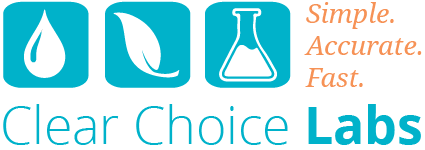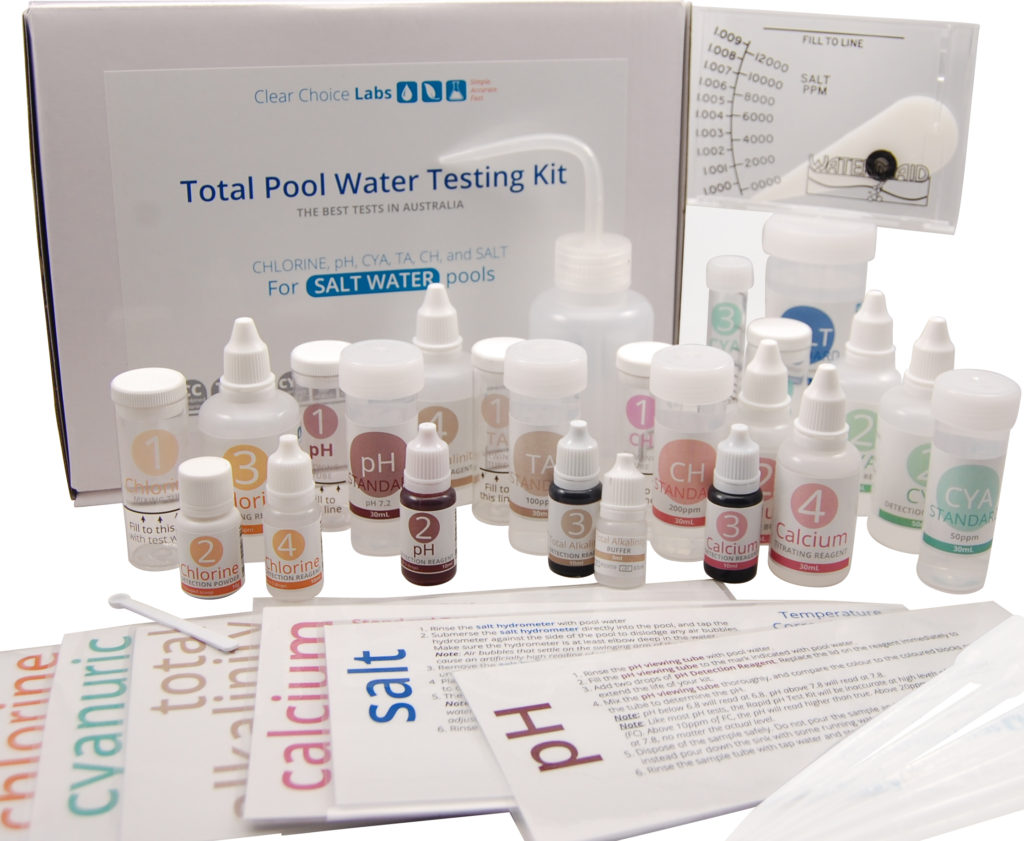Help!
Test Kit Reagent Compatibility Chart
Some people have asked us whether our reagents are compatible with other commonly available Australian FAS-DPD pool test kits. Where we know this information, we have provided it below. “Full” means that these chemicals are essentially identical. “Compatible” means that as long as the reagents are used in our bottles, then our reagents are 100% compatible, even though our drop sizes may be different. We’d be happy to answer any questions, just drop us an email at [email protected].
| CLEAR CHOICE LABS | TAYLOR TECHNOLOGIES | NQ-100 | ||
| Reagent Name | Reagent Name | Compatibility | Reagent Name | Compatibility |
| Chlorine Test | ||||
| Chlorine Detection Powder | R-0870 | Full | C-0201 | Full |
| Chlorine Detection Reagent | R-0003 | Full | Not supplied with this kit (3) | |
| Chlorine Titrating Reagent | R-0871 | Full | C-0202 | Compatible |
| pH Test | ||||
| pH Detection Reagent | R-0014 | Not Compatible (1) | C-0101 | ? |
| pH Detection Reagent | R-0004 | Full (1) | C-0101 | ? |
| Cyanuric Acid (CYA) Test | ||||
| CYA Detection Reagent | R-0013 | Full | C-0501 | Not Compatible |
| Total Alkalinity (TA) Test | ||||
| Total Alkalinity Buffer | R-0007 | Full | C-0301 | ? |
| Total Alkalinity Detection Reagent | R-0008 | Full (2) | C-0302 | ? |
| Total Alkalinity Titrating Reagent | R-0009 | Full | C-0303 | ? |
| Calcium Hardness (CH) Test | ||||
| Calcium Hardness Buffer | R-0010 | Full | C-0401 | ? |
| Calcium Detection Reagent | R-0011L | Full (2) | C-0402 | ? |
| Calcium Titrating Reagent | R-0012 | Full | C-0403 | ? |
| Salt Test | ||||
| Salt Detection Reagent | R-0630 | Compatible | ? | ? |
| Salt Titrating Reagent | R-0718 | Compatible | ? | ? |
Notes:
- The pH solutions R-0004 and R-0014 are the same chemical, but at different concentrations to suit different comparators. Depending on which comparator you are using, either reagent may work for you if you adjust the number of drops.
- Note that the drop size in our bottles are about 3/4 of the size of the Taylor reagents, but our chemical concentration is the same. Therefore, the number of drops to use in the Taylor tests should be increased compared to their instructions.
- We have tested our Chlorine Detection Reagent against the NQ-100, and can confirm that we can use this reagent to add combined chloramine detection to this kit.


Appreciating the time and effort you put into your blog and in depth information you present.
It’s awesome to come across a blog every once in a while that isn’t the same out of date rehashed material.
Wonderful read! I’ve saved your site and I’m adding your
RSS feeds to my Google account.
Hi, on your FAQ under the question titled “Do your reagents use Taylor Technologies chemistry” you state that the R-871 is a different concentration so the two couldn’t be mixed, but on this page you say it is “Full”. Maybe I am misunderstanding, but I think the FAQ suggests is it “Compatible: i.e. in your bottle? Unfortunately I bought a Taylor K-2006 kit before I found out about you guys but as I run out of reagents I will replace with your ones and the first one I have run out of is the R-871 FAS so just wanted to check it is correct. Could I put your reagent into the Taylor bottle? Thanks!
Hi Hamish,
Thanks for writing! You’ve spotted an oopsie where we haven’t kept everything up to date. The FAQ was written back in 2015 where we could not reliably source bottles with a consistent drop size, and we needed to make adjustments to the reagent to give customers results that they were expecting. However I am pleased to say that we resolved this issue, and you can now put this reagent in the Taylor bottles should you wish! I will update the FAQ right now!
Thanks again for pointing this out!